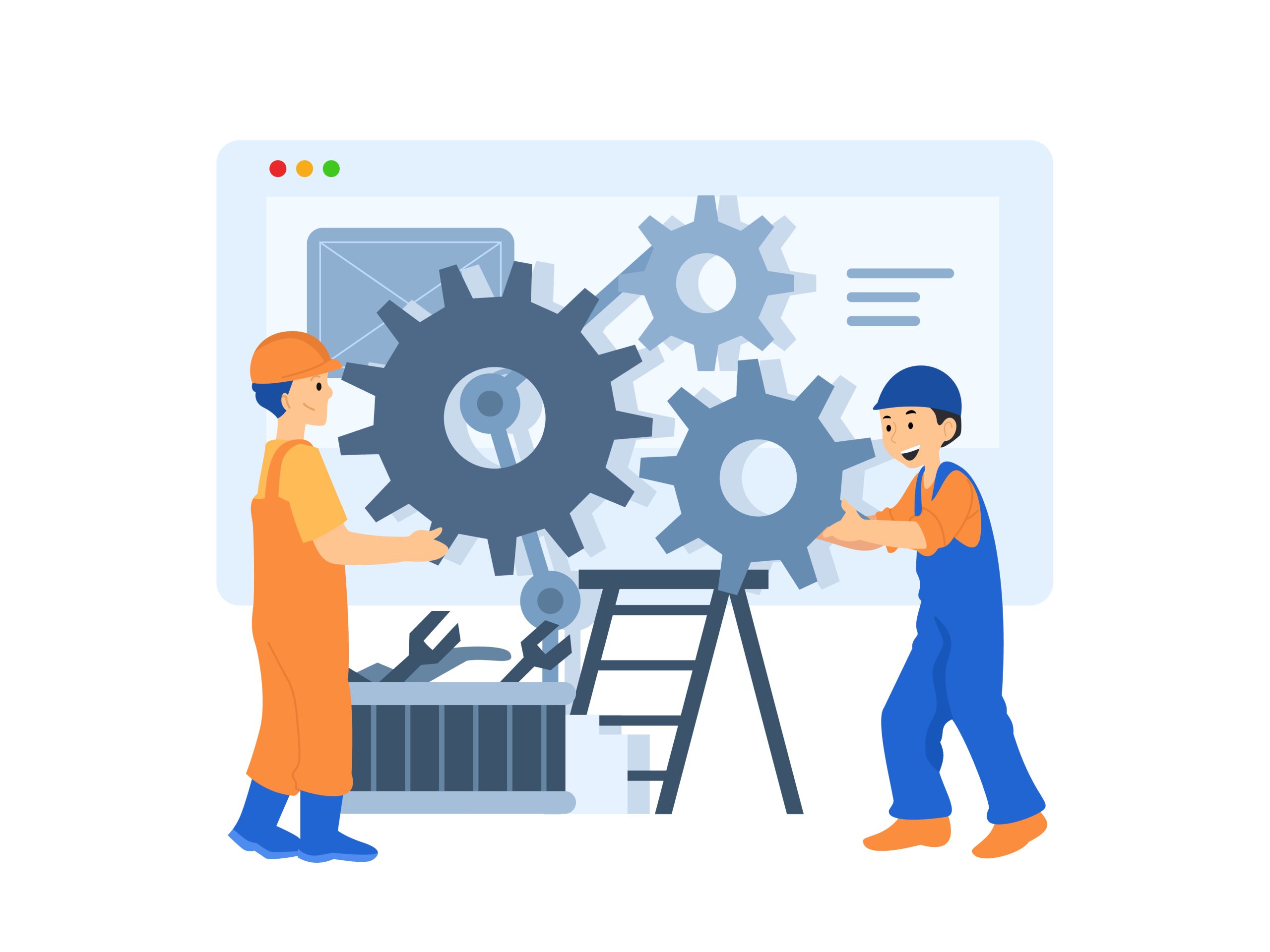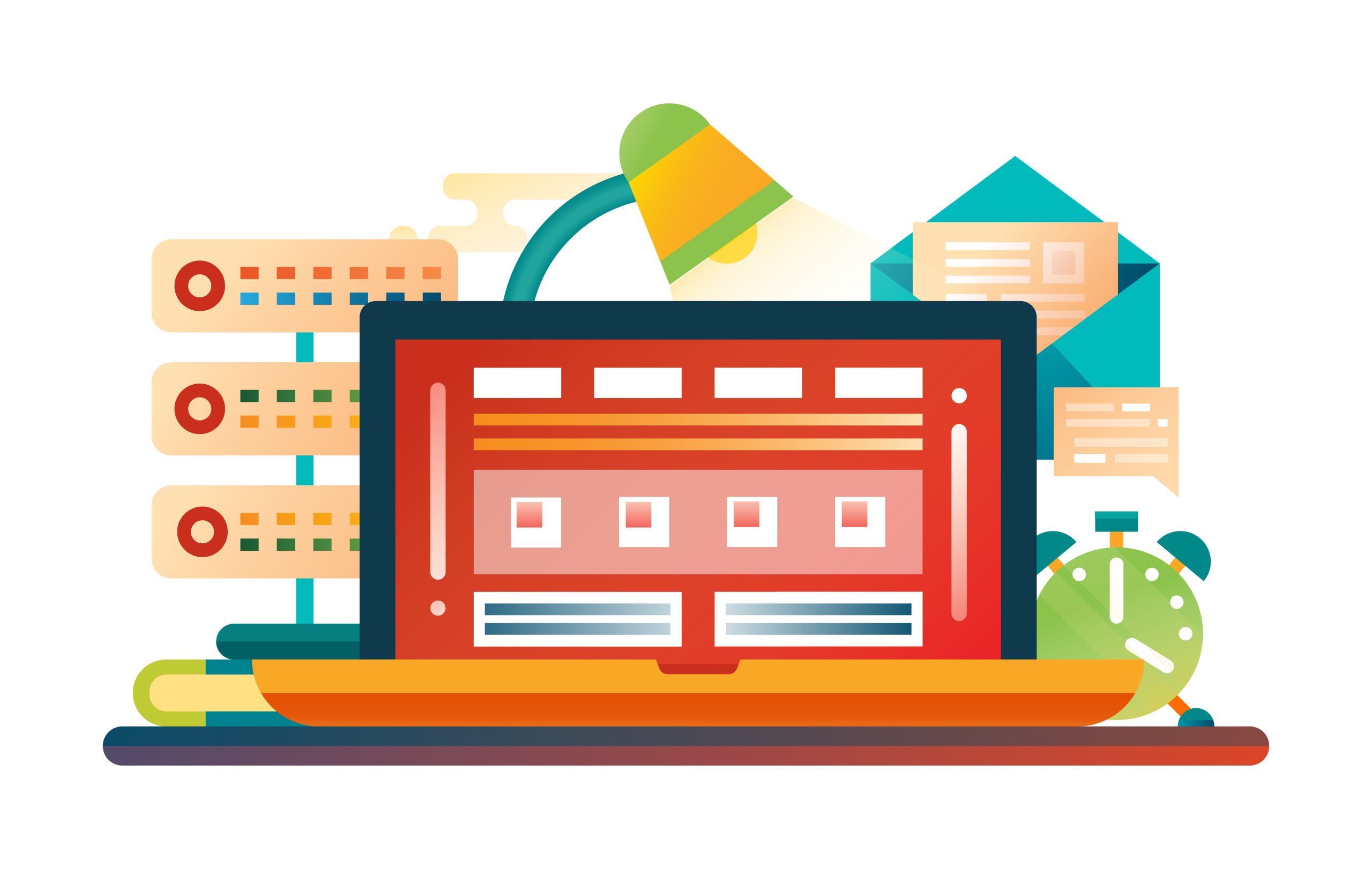How Often Should You Do Website Maintenance?
 Justin Young
Justin Young
- better user experience (UX)
- broken links
- CMS updates
- custom-built websites
- e-commerce websites
- enhanced security.
- frequent maintenance tasks vs. periodic comprehensive check-ups
- high traffic websites
- improved search engine rankings (SEO)
- industry standards
- large websites
- low traffic websites
- mobile-friendliness tests
- optimal performance
- page load speed optimization
- plugin updates
- Regular website maintenance
- security patches
- SEO ranking
- small websites
- user engagement metrics
- user experience
- website complexity
- website functionality
- Website Maintenance
- website management
- website performance
- website security
- website traffic
- website updates
- website upkeep

The Importance of Regular Website Maintenance
Website maintenance, website upkeep, website management, website performance Managing a website involves multiple tasks, including updating content, design elements, and functionality. To prevent potential vulnerabilities, it's crucial to keep your site up-to-date with the latest technologies, security patches, and bug fixes. Monitoring critical website performance metrics includes page load speed, mobile responsiveness, and overall site functionality. Regularly evaluating these factors helps identify any bottlenecks that may hinder your website's performance and take timely action to fix them. Moreover, maintaining your site's content quality and relevance while ensuring its technical aspects are up-to-date helps improve search engine rankings. Search engines like Google prefer websites that adhere to best practices in technical optimization and frequently update fresh content. Thus, investing time and effort into regular website maintenance can increase the chances of ranking higher in SERPs. Ultimately, regular website maintenance pays off by providing visitors with a seamless browsing experience that reflects positively on your brand. This instills trust in potential customers who rely on a well-functioning site for information or online transactions.The Factors that Determine the Frequency of Website Maintenance
website complexity, website traffic, website updates, website functionality, industry standards To ensure the smooth operation of your business website, it's crucial to consider several factors when deciding on the frequency of maintenance. Firstly, the complexity of your website design and functionality can impact the frequency of maintenance required. A website with advanced features may need more frequent check-ups to provide users with an optimal experience. Secondly, the amount of traffic your website receives is another important consideration. High traffic levels can cause resource strain, leading to performance issues and downtime. Regular maintenance helps detect and address potential bottlenecks caused by increased traffic. Furthermore, staying up-to-date with software versions, security patches, and bug fixes is vital to maintain the functionality of your website and protect it from vulnerabilities. Regular updates ensure optimal website performance and security. Lastly, compliance requirements or best practices within your industry may dictate the frequency of maintenance tasks. Staying on top of industry standards can help keep your website up-to-date and secure.1. Website Complexity and Size
small websites, large websites, e-commerce websites, custom-built websites Having a thorough understanding of the size and complexity of your website is essential in achieving success online. Whether you're creating a small website, a large e-commerce platform, or a custom-built site, you need to know the implications of their size and functionality. Smaller websites tend to be more straightforward, with fewer pages and simpler functionality. They're ideal for small businesses or individuals looking to establish a web presence without requiring a lot of technical know-how. These sites are cost-effective to build and maintain while still providing essential information about your brand or business. Larger websites, especially e-commerce platforms, require more features and functionality to manage multiple products, payment gateways, user accounts, and inventory management systems. Handling such complex systems can be challenging, but it can be rewarding if done correctly. These sites offer scalability and the potential for significant growth in online sales. Custom-built websites are highly flexible and unique, tailored to meet your business's specific needs. They offer complete control over design elements, features, and user experience. However, they require more time and resources due to their intricate development process. No matter the size or complexity of your website project, it's crucial to carefully consider your goals, target audience, and budgetary constraints before making a decision. Consulting with web development professionals can help you navigate through these considerations effectively while ensuring that your website aligns with your business objectives.2. Website Traffic and Usage
high traffic websites, low traffic websites, user engagement metrics Analyzing user engagement metrics is crucial in evaluating a website's effectiveness. Metrics like bounce rate, time spent on site, and conversion rates offer valuable insights into user behavior and their engagement with the content. High user engagement indicates that visitors find the website valuable, leading to increased conversions and ultimately business growth. For high-traffic websites, maintaining user engagement is equally important. This involves continuous analysis of data, identifying areas for improvement, and implementing strategies to keep visitors engaged. Strategies may include optimizing page load times, improving navigation experience, creating compelling content, or incorporating interactive elements. Low-traffic websites face unique challenges in attracting visitors and keeping them engaged. Careful analysis of target audience preferences and interests is necessary to create relevant content that drives traffic. Additionally, leveraging social media platforms or search engine optimization techniques can help increase visibility and attract organic traffic.3. Regular Updates and Security Patches
CMS updates, plugin updates, security patches Maintaining a secure and functional website requires regular updates to your security patches, content management system (CMS), and plugins. These updates are essential for improving your website's user experience and functionality, fixing bugs, and addressing known security vulnerabilities. Optimize website performance and security by regularly updating CMS and plugins to prevent malicious attacks and unauthorized access. Security patches are critical for safeguarding your website against potential threats, and developers release them promptly as new security vulnerabilities emerge. Failing to prioritize regular maintenance activities can expose your website to various risks, including data breaches, malware infections, and system failures. Therefore, it is crucial to stay vigilant about available updates and apply them promptly to your website. It is crucial to keep your CMS and its plugins updated with the latest security patches to maintain a secure online presence and provide a seamless browsing experience for your visitors, while also safeguarding their sensitive information.4. Monitoring and Analyzing Website Performance Metrics
page load speed optimization, mobile-friendliness tests, The optimization of page load speed is a pivotal factor in enhancing website performance and user experience. Empirical studies have demonstrated that users are more inclined to abandon websites that take an inordinate amount of time to load, thereby resulting in missed opportunities for businesses. By optimizing page load speeds, businesses can ensure an uninterrupted browsing experience. Such a seamless experience can lead to greater customer satisfaction and engagement. The proliferation of mobile devices has made mobile-friendliness of utmost importance. Mobile-friendliness tests objectively evaluate website performance on various mobile devices and screen sizes. Businesses must optimize websites for mobile viewing due to increasing mobile internet usage. Businesses can use mobile metrics to identify areas for improvement and optimize the mobile experience. Monitoring and analyzing website performance metrics not only assists in improving user experience but also impacts search engine rankings. Search engines consider factors like page load speed and mobile-friendliness for search rankings. Therefore, by continuously monitoring and enhancing these metrics, businesses can increase their online visibility and attract more organic traffic.Determining the Ideal Frequency for Your Specific Needs
frequent maintenance tasks vs. periodic comprehensive check-ups, Determining the appropriate frequency for maintenance tasks can be a challenging process, as it largely depends on your specific needs and circumstances. However, it's essential to strike a balance between regular maintenance tasks and periodic comprehensive check-ups to ensure optimal functioning and longevity of your equipment or systems. Regular maintenance tasks involve routine inspections, cleaning, and minor repairs that are performed more frequently. These tasks aim to prevent potential issues from becoming major problems by addressing small issues early on, which can help you avoid costly breakdowns and downtime. In contrast, periodic comprehensive check-ups involve more thorough examinations of your equipment or systems. These check-ups are typically conducted less frequently but are more extensive in nature. They allow for a deeper assessment of your assets' overall condition and performance. The frequency of maintenance tasks depends on equipment type, use intensity, environmental conditions, manufacturer recommendations, and industry standards. When determining how often to perform maintenance tasks or schedule comprehensive check-ups, it's crucial to consider these factors. By striking the right balance between regular maintenance tasks and periodic comprehensive check-ups, you can ensure that your equipment or systems remain reliable, efficient, and cost-effective in the long run. Performing regular maintenance not only prolongs the lifespan of equipment but also reduces the likelihood of unexpected breakdowns or malfunctions that could disrupt operations.The Benefits of Regular Website Maintenance
better user experience (UX), improved search engine rankings (SEO), enhanced security. One of the most important advantages of regular website maintenance is the improvement of the user experience (UX). Having a well-maintained website allows visitors to easily navigate, find information, and engage with content. This seamless user experience not only keeps visitors on your site longer but also encourages repeat visits, leading to increased conversions and customer loyalty. In addition to enhancing UX, regular website maintenance also plays a critical role in improving search engine rankings (SEO). To improve your website's search engine ranking, it's crucial to update your site with fresh content regularly and optimize its performance. Enhancing the content of your website, resolving broken links, and optimizing meta tags and keywords can amplify your chances of securing higher rankings in the search engine results pages (SERPs). This can result in an increase in organic website traffic, eliminating the need for paid advertising. Another significant benefit of regular website maintenance is enhanced security. Cyber threats are constantly evolving, requiring businesses to remain alert and address vulnerabilities. Regularly updating software versions, plugins, and security patches can help safeguard your website from hackers or malware attacks. This proactive approach not only protects sensitive data but also instills trust among users who value their privacy and security.Prioritize Regular Website Maintenance to Ensure Optimal Performance
Regular website maintenance, optimal performance, website security, user experience, SEO ranking, broken links Performing regular website maintenance provides numerous benefits, such as enhancing website security, improving user experience, and boosting search engine optimization (SEO) rankings. It's essential to keep your website secure by updating it regularly with the latest security patches and protocols. This measure is in place to safeguard confidential information and prevent any unauthorized breach. Furthermore, regular maintenance improves the user experience by fixing broken links, optimizing page load times, and ensuring seamless navigation. This results in a seamless browsing experience that entices visitors to engage with your content and explore your website further. Moreover, maintaining your website frequently is essential for improving search engine optimization (SEO) rankings. Search engines place a high value on websites that are well-maintained and up-to-date. Regularly updating content, optimizing meta tags and keywords, and fixing technical issues can increase the chances of ranking higher in search engine results.Related Posts
 The Importance of Website Maintenance in 2024 and Why Businesses Need It For Long-Term Success: Ensuring Optimal Performance and User Experience
The Importance of Website Maintenance in 2024 and Why Businesses Need It For Long-Term Success: Ensuring Optimal Performance and User Experience
Understanding the Significance of Website Maintenance Website maintenance, website management, website performance, user experience Maintaining a website requires consistent monitoring, updating, and troubleshooting to ensure optimal performance. This involves conducting routine checks for broken links, optimizing loading speed, fixing bugs or errors, and ensuring compatibility across various devices and browsers. The significance of website maintenance […]
 Best Website Maintenance Tools for your Business in 2024
Best Website Maintenance Tools for your Business in 2024
Discover the best website maintenance tools to keep your online presence running smoothly this year website maintenance, website management, website performance, website upkeep Best Website Maintenance Tools for your website is crucial to ensure a positive user experience. A well-maintained website enables visitors to navigate quickly, find relevant information, and interact positively with your brand. […]
 How Much Does Website Maintenance Cost?
How Much Does Website Maintenance Cost?
Know website maintenance costs upfront to avoid surprises and keep your website running smoothly.
Did you know that users take only 50 milliseconds (0.05 seconds!) to form an opinion about your website? Within this short period, they decide whether or not they want to stay. Keeping your website up-to-date is a critical way to show its quality.
The Cost of maintaining a website pays off in the end because 47% of customers will visit a company’s website before deciding whether or not to make a purchase. Therefore, it is essential to ensure everything looks fresh and runs smoothly!
 10 Essential Questions to Ask When Choosing the Best Web Hosting Services
10 Essential Questions to Ask When Choosing the Best Web Hosting Services
When selecting the optimal web hosting services, asking these ten essential questions is crucial. web hosting services, importance of web hosting, choosing the right web hosting provider, website performance Choosing the right web hosting provider is crucial for ensuring that your website is accessible to users at all times. They provide the necessary infrastructure and […]
 How Does Website Maintenance Increase Conversion Rates Over by 25%
How Does Website Maintenance Increase Conversion Rates Over by 25%
Does Website Maintenance Increase Conversion Rates: Boosting Conversion Rates: The Impact of Regular Website Maintenance on Your Business Introduction: Understanding the Importance of Website Maintenance for Higher Conversion Rates Website maintenance, website optimization, website performance, conversion rate improvement Does Website Maintenance Increase Conversion Rates: Website maintenance involves various tasks, including updating content, monitoring website performance, […]